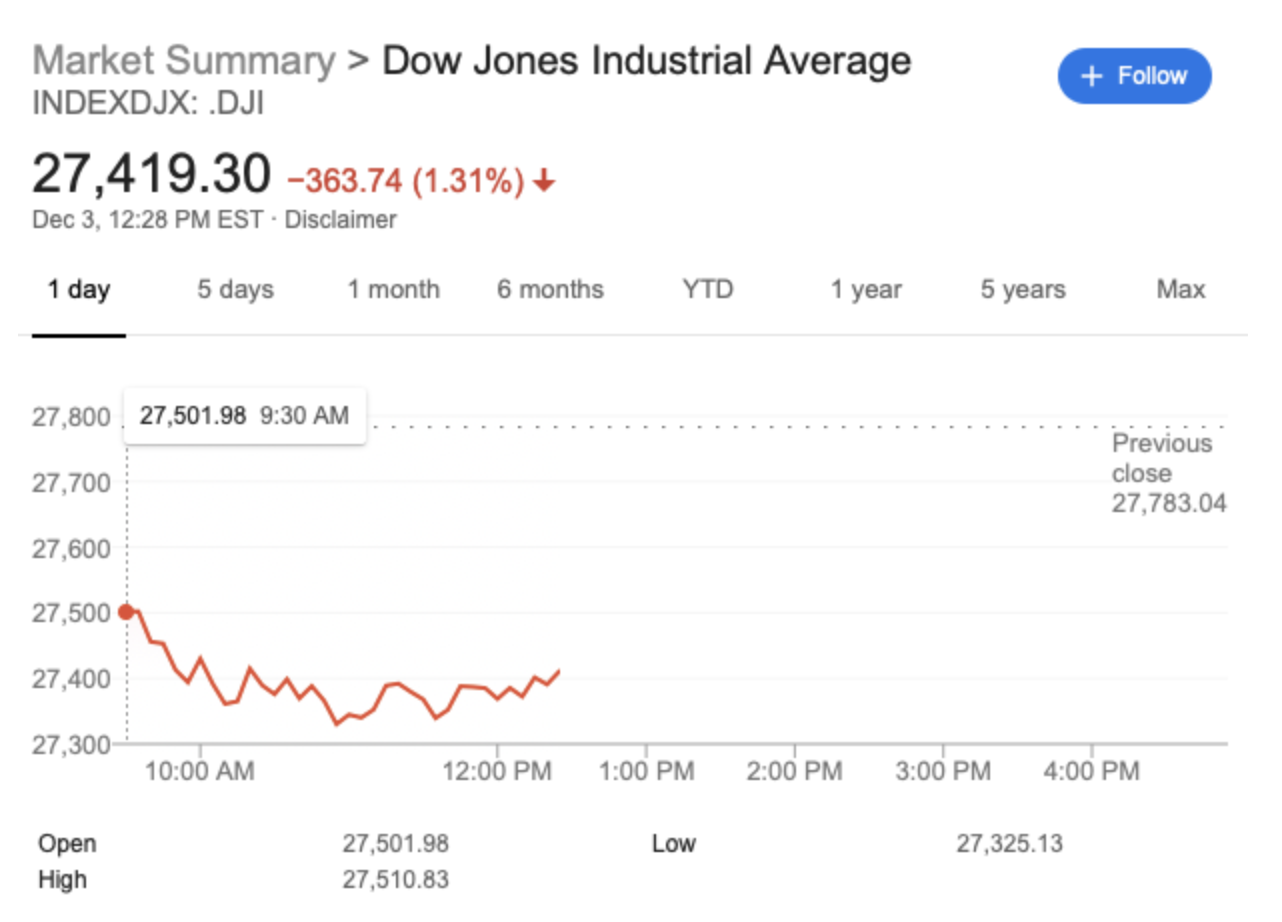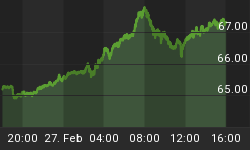So much for that trade war deal for Christmas. It’s not happening, and the DOW has shed nearly 400 points since this morning on that holiday sentiment alone. By 12:28pm EST, the DOW had shed over 440 points.

(Click to enlarge)
Earlier today in London, Trump dropped a trade war bombshell, saying that a deal isn’t like until 2020, and worse--not until after presidential elections, adding that “In some ways I think it’s better to wait for after the election if you want to know the truth”.
That likely means that Trump has been less than forthcoming about the success of negotiations about a trade deal, and publicly aiming for a deal after elections would suggest that it wasn’t a failure, officially, so might resonate less at the polls.
And “after the elections” is a vague notion, and Trump concedes that he has “no deadline”.
The DOW just took a plunge because the markets had already priced in a trade deal after a verbal agreement between China and the U.S. over a month ago.
And it’s not just the China element that’s dragging down the markets.
On Monday, Trump slapped aluminium and steel tariffs on Argentina and Brazil, and then followed that up with a threat to French cheese and champagne--for good measure and in retaliation for France’s digital tax on American tech giants Google and Facebook.
The only thing bucking the equities trend is steel, thanks to the presidential bump via Twitter.
Related: Ousted Uber CEO Cashes Out $500 Million In Stock
Trump said he would “restore” steel and aluminum tariffs on both Argentina and Brazil due to “massive devaluation of their currencies, which is not good for our farmers”. He called on the Federal Reserve to “act so that countries, of which there are many, no longer take advantage of our strong dollar by further devaluing their currencies”.
Last year, both Argentina and Brazil (along with Canada and Mexico) were exempted from the 25% steel and 10% aluminum tariffs.
Argentina, which is transitioning to a new regime after Mauicio Macri’s election defeat in October, is also reeling from a looming financial meltdown, and steel tariffs will further harm local production and employment at the worst of times.
Steel producer stocks benefited Monday, but not spectacularly, and had started paring some gains Tuesday. Despite Trump’s tariff regime, the U.S. steel trade balance isn’t really … balancing out much. U.S. steel imports dropped about 16% year to date, according to the American Iron and Steel Institute (AISI); but in October they were up 14.5% over the previous month.
Back to France, Trump is threatening tariffs on French champagne and cheese over a global trade dispute that will see the Western European ally implement a digital services tax on U.S.-based tech companies. That tax would negatively impact Google, Apple, Facebook and Amazon. Trump’s threat follows a Monday report from the Office of the U.S. Trade Representative, claimed to demonstrate that France’s tax unfairly discriminates against big U.S. tech companies.
By Fred Dunkley for Safehaven.com
More Top Reads From Safehaven.com
















